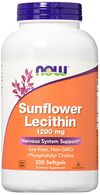Mastitis
Contents
Introduction
Breastfeeding is a beautiful and natural process that provides numerous benefits for both a woman and her partner. However, occasionally, complications such as mastitis can arise, causing discomfort and concern for breastfeeding women. In this article, we will address some common questions and concerns surrounding mastitis, including its causes, symptoms, treatment, prevention, and recurrent cases.
What Causes Mastitis?
Mastitis can be caused by various factors, including blocked ducts, engorgement, and infections. Engorgement occurs when milk production exceeds the amount removed during breastfeeding, resulting in painful and overfull breasts. Infections can develop if bacteria enter through cracked nipples, leading to inflammation and tenderness.
How Do I Know If I Have Mastitis?
Symptoms of mastitis typically include redness, swelling, pain, fever, and flu-like symptoms such as chills or fatigue. The affected breast may feel hot to the touch, and there may be a yellowish or greenish discharge from the nipple.
How Can I Treat Mastitis?
Treatment for mastitis usually involves a combination of antibiotics if an infection is present and pain relievers such as ibuprofen to alleviate discomfort. It is crucial to express milk from the affected breast using hand expression or a breast pump to reduce engorgement and prevent further blockage of ducts. The severity of the event can be lessened with Cephalaxin and/or a lactation massager (specialized waterproof vibrator).
How Can I Prevent Mastitis?
Prevention is key when it comes to mastitis. Good hygiene practices, such as washing hands before and after nursing sessions, are essential. Avoiding nipple cracks and ensuring a proper latch during breastfeeding can also help prevent the introduction of bacteria. Additionally, expressing some colostrum before each nursing session can prevent engorgement and infection.

What If I Experience Mastitis Again?
If you experience mastitis multiple times or have recurrent symptoms despite preventive measures, it is advisable to consult with a healthcare professional. They can provide further evaluation and explore additional treatment options. Understanding the underlying causes and receiving expert guidance can be instrumental in managing and preventing mastitis effectively.
Conclusion
While mastitis can present challenges and discomfort during the breastfeeding journey, it is important to remember that it is a treatable condition. By understanding the causes, recognizing the symptoms, and implementing appropriate preventive measures, women can minimize the risk of developing mastitis. Seeking prompt medical attention and professional advice when needed is crucial for effective management and a positive breastfeeding experience. With the right support and knowledge, women can overcome mastitis and continue to nurture their partners through the beautiful bond of breastfeeding.
See also WebMD.com's article about Mastitis. (Article assumes child breastfeeding; for adult breastfeeding similar principles apply).
Frequently Asked Questions
About Inducing Lactation
Can I induce lactation/lactate without a pregnancy? If so, what supplements should I use and when?
How long does it take to induce lactation?
I get aroused during breastfeeding or my breasts leak during sex. Is there something wrong with me? (warning:NSFW)
Can I induce lactation for my husband or boyfriend, or let him suckle me?
Why does my breast milk production lower during my period?
How does inducing lactation affect menopause? Does inducing help relieve symptoms?
Does inducing lactation make me feel more feminine and womanly?
Where can I find someone to help me induce faster?
What does that feel like? What does it look like? (warning:NSFW)
How can I increase my breast milk supply? Where can I find recipes for lactation cookies?
Where can I order Domperidone online without a prescription?
Why does one of my breasts produce less milk than the other? What can I do about this?
What are letdowns? What happens during a letdown? How long do they last?
Where can I learn more about breast pumping?
Can I use a TENS Unit to help induce lactation? (warning:NSFW)
What does breast milk look like? What does breast milk taste like?
What else can I use breast milk for?
Are there health concerns from breastfeeding or letting someone drink my milk?
It's perfectly fine to try another person's breast milk if you know their health history. Breast milk is a body fluid and therefore it's possible to transmit pathogens. The next biggest concern is Mastitis (warning:NSFW) which can be lessened with Lecithin and a proper latch technique (warning:NSFW). The Piercings and Lactation page (warning:NSFW) addresses this concern as well.
